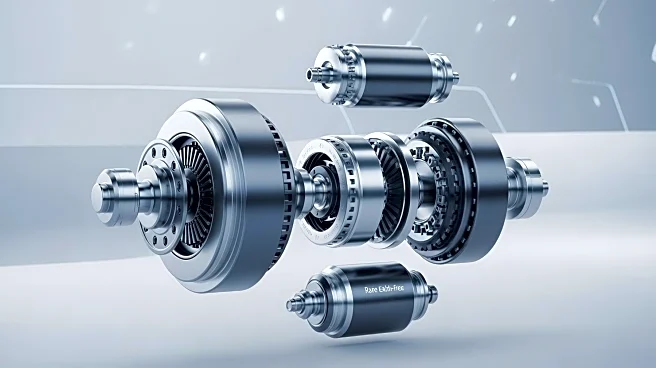What's Happening?
Enedym, a Canadian technology company specializing in switched reluctance motors (SRMs), has received investment from Honda Motor Co. through the Honda Xcelerator Ventures program. This funding aims to accelerate
the development of Enedym's patented motor technology and expand its operations. Enedym, headquartered at McMaster Innovation Park in Hamilton, Ontario, holds over 70 patents and pending patent applications. The company focuses on creating electric motors that do not use rare earth metals or permanent magnets, offering a digitization platform to design motors more efficiently. Founder Ali Emadi highlighted the innovative nature of their motors, which are quiet, efficient, and scalable. Honda's Managing Executive Officer, Manabu Ozawa, expressed optimism about Enedym's technology, noting its potential to replace conventional permanent magnet motors that rely on rare earth materials.
Why It's Important?
The investment from Honda signifies a strategic move towards sustainable and cost-effective electric motor technology. Rare earth metals, commonly used in electric vehicle motors, are expensive and pose environmental challenges. Enedym's technology offers an alternative, potentially reducing dependency on these materials and lowering production costs. This development could influence the electric vehicle industry by promoting more environmentally friendly and economically viable motor solutions. Honda's involvement underscores the growing interest in innovative technologies that align with global sustainability goals, potentially setting a precedent for other automakers to explore similar investments.
What's Next?
With Honda's investment, Enedym is expected to accelerate its technology development and operational expansion. This partnership may lead to further collaborations between the two companies, potentially integrating Enedym's motors into Honda's electric vehicle lineup. As the technology progresses, it could attract additional investments from other automakers seeking sustainable motor solutions. The success of Enedym's motors could also prompt industry-wide shifts towards rare earth-free technologies, influencing manufacturing practices and supply chain dynamics in the electric vehicle sector.
Beyond the Headlines
The shift towards rare earth-free motor technology could have broader implications for global supply chains and environmental policies. As demand for electric vehicles grows, reducing reliance on rare earth materials could alleviate geopolitical tensions related to resource scarcity and environmental degradation. Enedym's approach may inspire further research and development in alternative motor technologies, fostering innovation and competition in the industry. This could lead to long-term changes in how electric vehicles are manufactured and perceived, emphasizing sustainability and efficiency.











